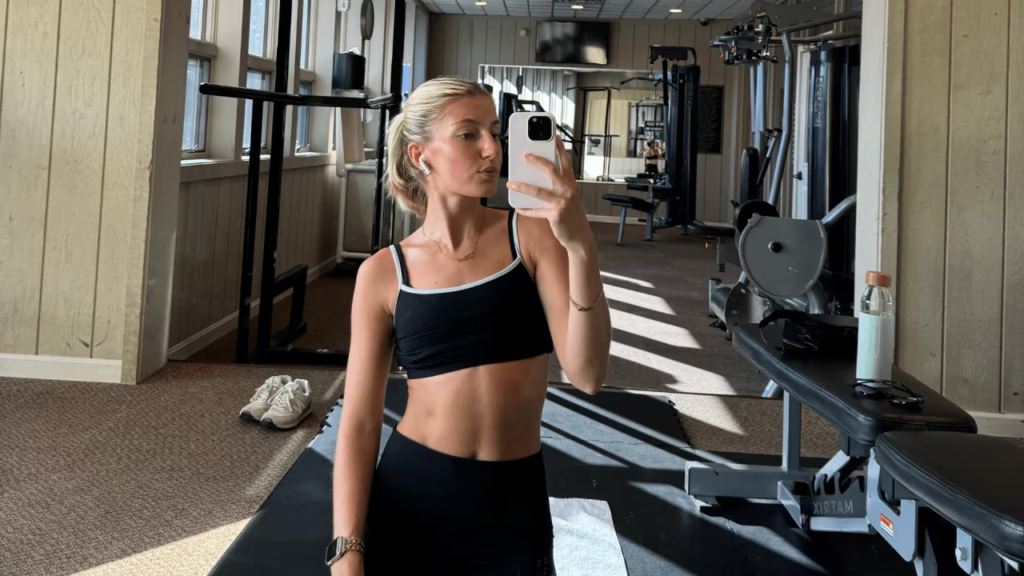Finding it hard to fit in exercise from Monday to Friday? According to science, squeezing it in over the weekend may be just as good for you.
Between work, looking after kids or elderly parents, catching up with friends, being the family chauffeur and keeping up with routine household jobs, it can be hard to find time to exercise during the week.
Australian government guidelines recommend adults do two-and-a-half to five hours of moderate-intensity physical activity each week.
That could be a brisk walk, swimming, mowing the lawn or playing golf – pretty much any type of movement that boosts your heart rate, deepens your breathing and makes you feel warmer.
But, according to World Health Organization researchers, almost one third of adults worldwide – about 1.8 billion people – aren’t fitting enough physical activity into their week.
In Australia alone, about 37 per cent of adults don’t move enough, according to the Australian Institute of Health and Welfare.
Why concentrated effort still counts
While lack of time, poor health and injury are some of the reasons Australians are not meeting physical activity guidelines, recent research offers hope that when you exercise doesn’t matter – as long as you fit in enough minutes each week.
A study published in the American Heart Association’s journal Circulation in 2024, involving almost 90,000 people, has found that ‘weekend warriors’ – people who cram most of their exercise into a day or two – may gain the same health benefits as those who spread their exercise throughout the week.
“The bottom line is that it’s really the total volume of physical activity, rather than the pattern, that matters,” study co-senior author Dr Shaan Khurshid, a cardiac electrophysiologist, says.
“The important thing is that you get your recommended levels of activity; if one to two days a week works for you, you’re still going to get that benefit.”
The good news about exercise and disease risk
The study found that doing 150 minutes of moderate to vigorous physical activity either throughout the week or as a weekend warrior resulted in a more than 20 per cent lower risk of high blood pressure, a more than 40 per cent lower risk for diabetes and sleep apnoea, and a roughly 50 per cent lower risk for obesity when compared with people who don’t meet the recommended weekly amount of physical activity.
“If you work nine to five from Monday to Friday, it can be challenging to fit in regular activity on most days of the week,” Baker-Deakin Department of Lifestyle and Diabetes head Professor David Dunstan says.
“The good news, according to this research, is it doesn’t matter about how you fit in physical activity, as long as you do it at some point.
“If that’s on two days at the weekend, it seems to have similar benefits to those minutes being accumulated across the week.”
How to work out like a weekend warrior
Exercise physiologist Lauren Sexton says combining strength training with high-intensity interval training (HIIT) is a good basis for weekend exercise, as it delivers both musculoskeletal and cardiovascular benefits.
#1. Warm up
“A well-rounded session might begin with a five-minute warm-up including light cardio or a warm-up set of main lifts,” Sexton suggests.
#2. Build your strength
Next, Sexton recommends spending 20 to 30 minutes on strength training, “focusing on squats, deadlifts or presses”.
#3. Get your heart rate up
After strength training, Sexton suggests you transition into 20 minutes of vigorous aerobic exercise or sprint intervals.
#4. Focus on flexibility
“Finish the session with 10 minutes of stretches that help maintain mobility and flexibility,” Sexton says.
How to get started as a weekend warrior
Think being a weekend warrior would better suit your routine but not sure where to start?
The experts suggest you begin at a level that matches your current fitness level to avoid injuries.
“Listen to your body. If on one of your days you feel sore or have a niggling injury, you need to dial things back a little for the subsequent days or week,” Prof Dunstan advises.
Sexton says consistency is key – and so is making weekend exercise fun.
“Prioritise sleep, eat well and start with realistic fitness goals,” she advises.
“Most importantly, have fun, because you’re more likely to stick with your routine if you enjoy it – experiment with different activities until you find something that excites you, so you can challenge yourself while enjoying the experience.”
And remember, weekend physical activity doesn’t have to be confined to a gym or running track – anything that gets you off the couch, raises your heart rate a little and gets major muscles moving has benefits when you do it for the recommended amount of time.

